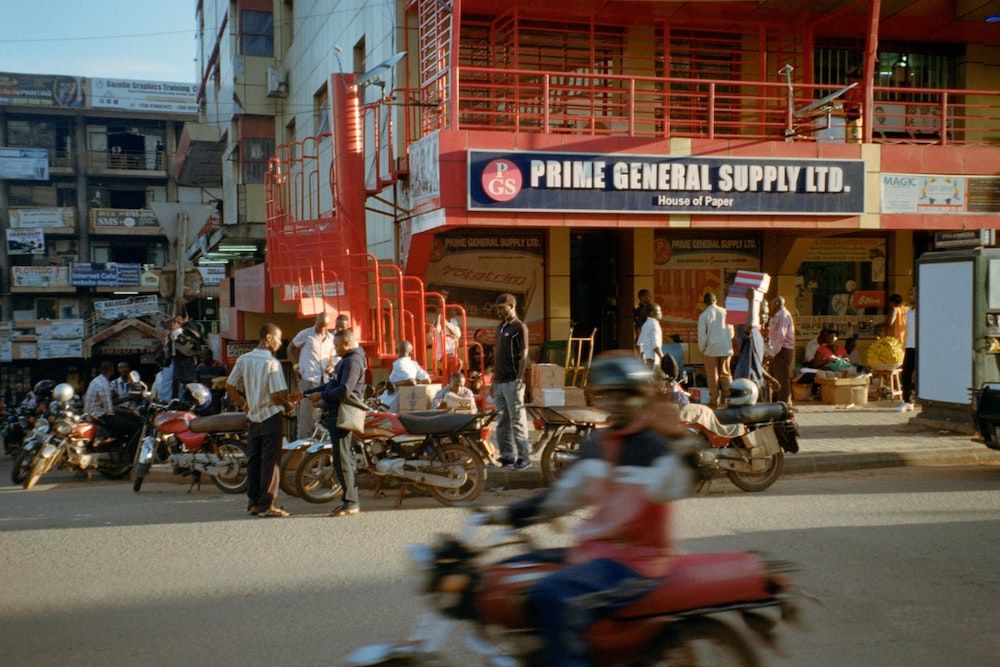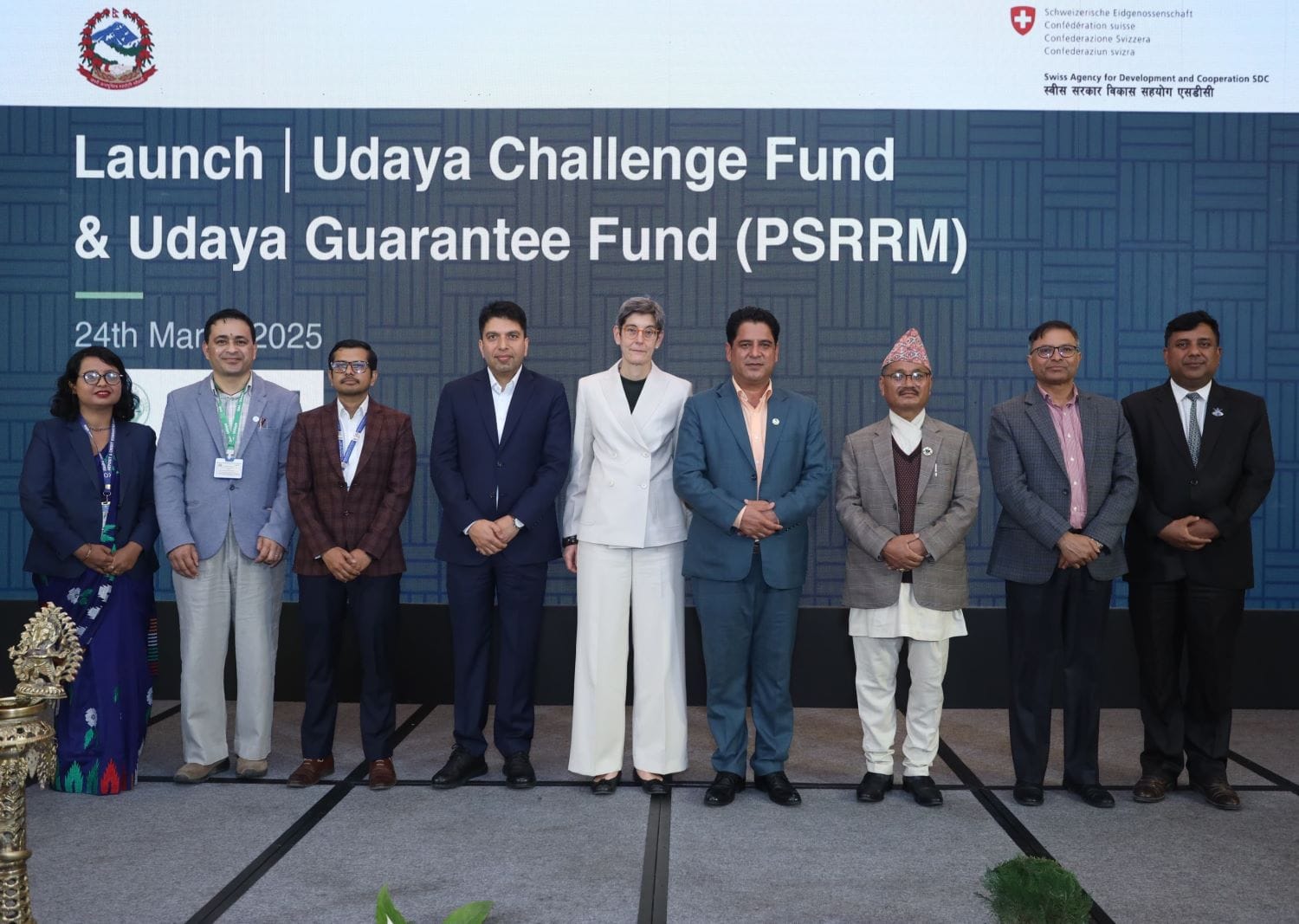While the full impact of the COVID-19 pandemic on developing countries continues to unfold, it seems clear that the public health response of lockdowns and business closures is having a profound effect on developing economies. In the face of dwindling revenue, private companies with limited working capital reserves are forced to lay off staff and close their doors. The impact on the economy and poverty levels will be acute and is likely to reverberate for years to come.
Yet just as government policies have mitigated the health impact of the pandemic, so effective policies toward the private sector can mitigate its economic impact.
Small businesses, in particular, are key players in emerging economies. Small and medium-sized enterprises (SMEs) account for 78 percent of employment in such economies and are widely recognised as the nucleus for local markets and communities, offering innovation, supporting social cohesion, and playing an important role in the equitable distribution of income. Crucially, in the context of COVID-19, they also enable access to medical and other services, cleaning materials, and medicines.
While COVID-19 is perhaps unprecedented in its sheer scale and abruptness, there are still lessons to be learned from previous examples of governments and donors collaborating to help businesses stay afloat. One such example comes from the Palestinian Territories, where a pair of linked programmes funded by the U.K. Department for International Development (DFID), the World Bank, and the European Union (EU) supported hundreds of businesses to weather the extreme economic disruption resulting from the war in Gaza and remain viable enterprises that could provide jobs and foster demand and supply in markets.

The FNMD project helped businesses with hiring staff, among other services. Photo: FNMD.
Gaza Back to Work
In 2009, the military incursion in Gaza brought the private sector to a standstill. Up to 90 percent of businesses in Gaza closed or significantly reduced capacity, exacerbating already high levels of unemployment. In response, the four-year Facility for New Market Development (FNMD)—jointly funded by DFID and the World Bank and running from 2008 to 2012—launched the Gaza Back to Work (GB2W) grant window to address the needs of Gaza businesses.
The grants were designed to cover the operating costs of hiring staff, ensuring payroll until business revenue was sufficient, and maintaining inactive machinery. The aim was to restart dormant businesses by injecting liquidity, thereby enabling job creation, stimulating the private sector, increasing the purchasing power of employees, and speeding the resumption of economic activity. The grants provided support for up to three months of operating expenses with a maximum amount of $30,000 per business. In total, 288 grants were disbursed. Dormant assets were rapidly brought back to working condition, jobs were created, and markets strengthened. Critically, 87 percent of the supported employees were still working after FNMD ended, and 250 additional employees had been hired beyond what was supported by the programme.
Gaza Back to Business
In 2014, another Israel-Gaza war erupted. The impact on Gaza’s private sector—already fragile, and hampered by an infrastructure weakened by years of blockade—was far reaching. Some 485,000 people were displaced. Physical destruction, disruptions to electricity and power supplies, and unreliable communications networks—compounded by restrictions on movement and on the ability to import and export—severely harmed Gaza’s business prospects.

Offices all over Gaza were heavily damaged. Photo: DAI Palestine.
The DFID- and EU-funded Palestinian Market Development Programme (PMDP), having learned from the experience with FNMD’s GB2W, responded immediately by launching the Gaza Back to Business (GB2B) grant window. GB2B covered the rehabilitation of damaged equipment to return it to working condition, the replacement of fixed assets, and recurring expenses such as staff payroll. Most awards were for less than $15,000, but their impact—matched, importantly, with grantee contributions—was substantial. Businesses that might have collapsed irrevocably were able to operate again.
Strikingly, when evaluators revisited these businesses in 2016, it turned out that more than 50 percent of them had expanded, adding an average of five jobs per supported company. During the period between 2015 and July 2018, the grantee companies re-invested a total of £24,482,364 to restore their businesses and improve their production capacities. PMDP’s £3.3 million in grants had created 7.35 times leverage by the private sector.
Applying Lessons From Gaza to COVID-19
While we should be cautious about extrapolating from Gaza to the many and various developing economies affected by COVID-19, the challenges facing war-torn Gaza were in key respects comparable to those thrown up by the pandemic, including severely constrained movements, restrictions on importing and exporting, and reduced cash flows for businesses. Some key lessons can be drawn from the Gaza experience to inform programming around COVID-19.
Addressing longer-term challenges
Back-to-business grants like GB2B and GB2W are designed to mitigate the immediate impact of an external shock but are not sufficient for a long-term fix. Even a short shock to the system can reverberate for many years. Understanding that the longer-term needs of the private sector will evolve as firms get back on their feet is important, and should be built into grant mechanisms from the outset. Being able to shift the focus of grant windows—adding medium- and long-term support as the short-term challenges are addressed—is critical.
During the FNMD extension (2011–2012), for example, DAI designed the Gaza Back to Market (GB2M) window, which built on GB2W to identify more systemic market failures, help businesses re-establish and strengthen market linkages, and target external markets. Grants were tailored to specific sectors, SMEs, and distinct market dynamics. COVID-19 is likely to cause similar market disruptions. Effectively addressing them will require rapidly understanding how markets have altered and what changes businesses will have to consider: new dynamics between digital delivery and other services, local and international demand and supply fluctuations, and an anticipated new emphasis on domestic supply chains (likely weaker than ever), among others. A back-to-market window could help enterprises adapt their business models and ensure that SMEs can respond to remain integrated in markets.
Bridging gaps where governments lack capacity
Effective rescue packages to protect the population and the economy require significant resources. However, the fiscal stimulus interventions that developed countries are deploying during the COVID-19 crisis are not always feasible for developing nations. Donors and delivery partners can play an important role in bridging this gap, but country ownership will strengthen local institutional capacity, ensure better utilisation of local resources, and reinforce the intervention’s sustainability.
Offering an appropriately scaled response
Complex, rigid donor disbursement mechanisms are a hindrance in an emergency, where flexibility is the order of the day. In both the FNMD and PMDP cases, the donors and the Palestinian Authority supported the rapid adaptation of grant eligibility criteria to meet the changing needs of businesses. For example, in the agriculture sector, eligibility requirements were loosened to ensure informal or seasonal workers could benefit from the support, in addition to registered businesses. As grantee priorities shifted toward recovery, the team raised its tolerance for risk accordingly, streamlined its due diligence requirements, and ensured that procurement and spending were not slowed by burdensome regulations.
In responding to COVID-19, ensuring the flexibility of financing instruments will be essential. DAI is currently revising the GB2B mechanism to help businesses meet COVID-19 hygiene and safety requirements, for example—which should slow the spread of the virus and facilitate the reopening of businesses.
Responding rapidly during and after a crisis
As the conflict waned in 2014, PMDP prepared to act fast and—once the ceasefire was announced—pivoted quickly to provide businesses with immediate liquidity. Using existing programme infrastructure such as grant mechanisms to enable a swift response is a lesson we should extend to the COVID-19 response. And while there is no fast track to “normality” in the wake of COVID-19, development partners should engage the private sector now and start planning for economic recovery early on. Numerous examples suggest that even in protracted or extreme crises, markets continue to function in some form and therefore offer opportunities for engagement.
Targeted, Swift Action Can Make a Difference
The bottom line is this: Even with relatively small investments into each enterprise, smartly implemented back-to-business grants such as those deployed in Gaza can be the difference between companies weathering the storm—even forging new strengths in the crucible of crisis—and succumbing to a fatal blow. The key for donors, governments, and implementing partners is to act quickly and flexibly on the basis of intimate market knowledge.





